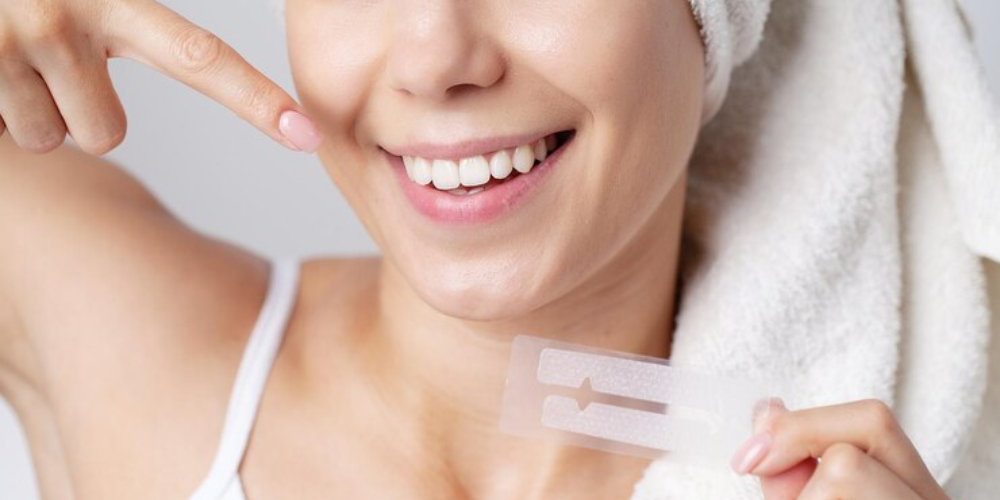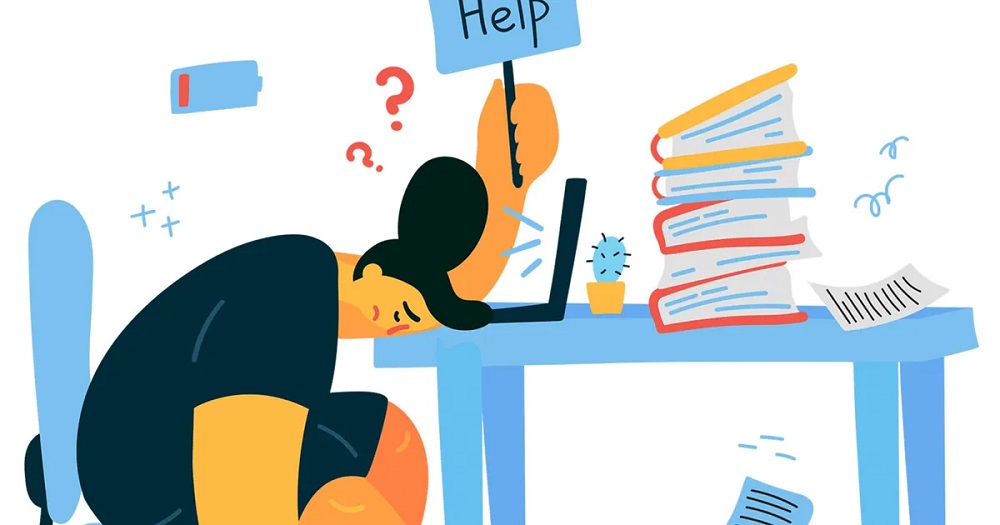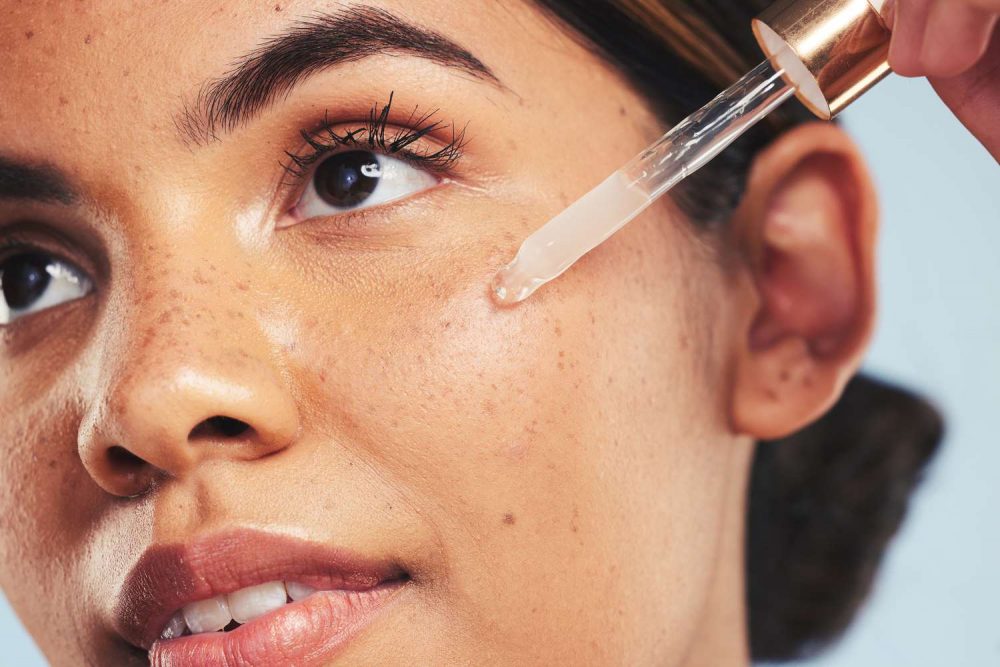Dreaming of a dazzling smile but shrouded in doubt about whitening strips? You're not alone. These handy little tools promise brighter teeth, but conflicting information swirls around their use. Can they be trusted? How often should they be used? Should you brush your teeth after whitening strips?
This guide will navigate the world of whitening strips, answering your questions and clearing up any confusion.
What are Whitening Strips and How Do They Work?
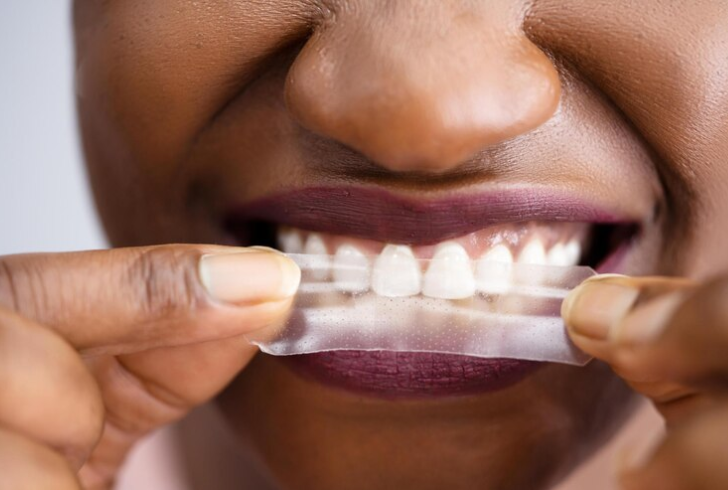
Freepik | andreypopov | Thin, flexible strips coated with whitening gel lighten stains, embracing teeth for a brighter smile.
Whitening strips are thin, flexible adhesive patches coated with a peroxide-based whitening gel. Designed to hug your teeth, they lighten surface stains through a bleaching process. Most come in pairs for both upper and lower teeth and require 30-minute applications, once or twice daily.
Unlike professional whitening treatments, whitening strips are available over the counter at drugstores or online retailers. The secret weapon behind their whitening power is hydrogen peroxide, though gentler alternatives using carbamide peroxide exist for those with sensitive teeth.
It's important to manage expectations. While effective against coffee, tea, or smoking stains, whitening strips might not conquer deeper discoloration caused by genetics or medication. In such cases, consulting a dentist for stronger treatments like veneers or crowns might be necessary.
Are Whitening Strips Safe?
Safety is a top concern for many considering whitening strips. After all, you're applying a chemical solution to your teeth. The good news is that, when used as directed, whitening strips are generally safe for most people. The peroxide used is a well-established whitening agent with a long history of safe dental use.
But, some potential side effects exist. Tooth sensitivity and gum irritation are the most common culprits. If you experience discomfort, take a break from the strips and consult your dentist. Remember, following the instructions is key. Overusing strips can damage your enamel and lead to other oral health woes.
How Often Should You Use Whitening Strips?
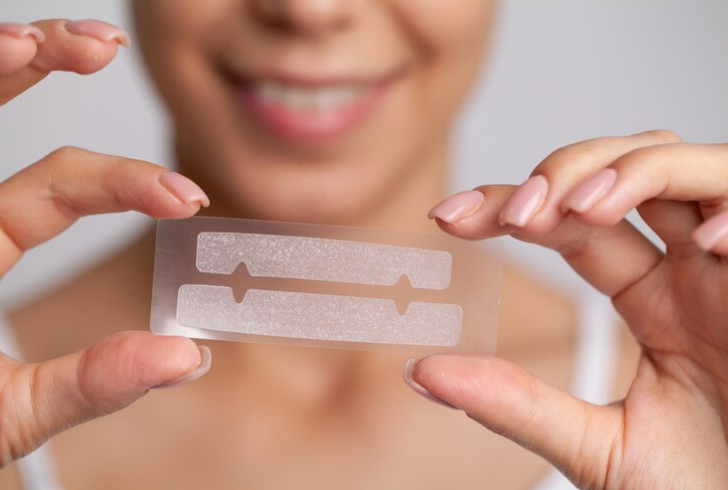
Freepik | maksymiv_yura | Usage frequency varies based on brand and desired whiteness level.
The frequency of use depends on the brand and your desired level of whiteness. Most kits recommend daily use for 14 days but always refer to the specific instructions provided. Don't be tempted to exceed the recommended frequency – once a day is enough. Excessive use can lead to tooth sensitivity and enamel damage.
Consider your staining habits too. If you're a coffee or red wine enthusiast, you might need more frequent touch-ups to maintain results. But, if you experience any discomfort, stop using the strips immediately and consult your dentist for alternative solutions.
Should You Brush Your Teeth After Whitening Strips?
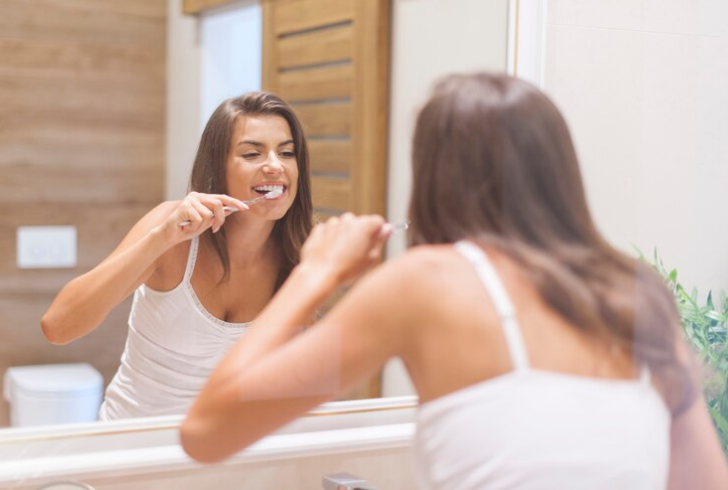
Freepik | gpointstudio | While tempting, experts advise waiting 30 minutes post-whitening strip use before brushing.
The urge to brush your teeth after using whitening strips for a fresh feeling is understandable. yet, experts recommend waiting at least 30 minutes before brushing.
There's a scientific reason behind this advice. Whitening strips contain hydrogen peroxide, which can weaken tooth enamel, making it more susceptible to damage from brushing. Brushing too soon could also force the peroxide deeper into the enamel, causing increased sensitivity.
Instead of brushing right away, rinse your mouth with water after removing the strips. This removes any residual gel while allowing your saliva to neutralize and remineralize your tooth enamel. Remember, moderation is key when using whitening strips to avoid harming your teeth.
The Final Brush (After 30 Minutes, Of Course!)
While there's no one-size-fits-all answer to the question - should you brush your teeth after whitening strips, some general guidelines can help you navigate this whitening journey.
- Follow the instructions: Each brand's whitening strips might have different use instructions. Reading and following them ensures you're using them effectively.
- Maintain good oral hygiene: Brushing and flossing is crucial for oral health. Brushing before using strips removes plaque buildup while waiting at least 30 minutes after use allows for enamel remineralization before your next brush.
- Consult your dentist: If you experience any discomfort or have concerns about whitening strips, seek guidance from your dentist. They can tell you the best whitening options for your unique needs.
Whitening strips, when used and in moderation, can be a powerful tool for achieving a brighter smile. By following these tips and prioritizing your oral health, you can enjoy a dazzling smile without compromising on safety. So, flaunt that smile with confidence!

